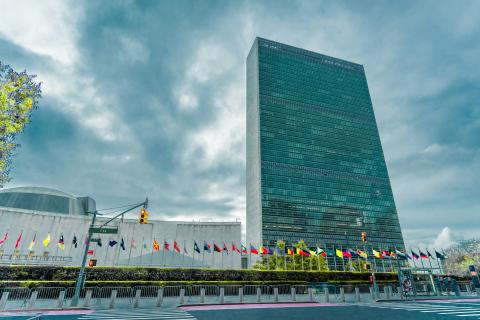
Valentine’s Day. A day to celebrate true love, romance, and finally finding “the one.” All the things that make for a happy and fulfilling relationship.
Or… not quite. A recent piece published in The Wall Street Journal last weekend suggested harboring a bit of caution around the swoon of yesterday’s holiday, the reason summed up in its snappy title: “Don’t Buy the Soulmate Myth: Romance is not enough to forge a stable and happy marriage.”
The point finds an audience for whom “soulmates” are certainly no myth. A full 80% of Americans under the age of 30 believe that “two people…are destined to be together.”
The author argues that this attitude toward finding a suitable partner puts a troubling priority on passionate feelings and strong emotional connection in relationship, dismissing the reality that love inevitably requires work, self-sacrifice, and the intentional decision to choose the other, even when one doesn’t feel like it. Relationships that get difficult aren’t necessarily the wrong fit, he suggests. Rather, they might just need the self-giving care that all mature relationships do, however “right” they feel at the start.
Christians know all this, of course, holding to a definition of love that goes beyond sentiment: willing the good of the other. And yet these misled ideas sometimes slip into a religious lexicon in the way vocation is talked about – as God destining one person for the other in His providential plan for the world.
The problem is that simply applying the word “vocation” to the soulmate myth doesn’t change anything. Certainly God has plans for every human life – plans beyond those we could ever dream up – but He also involves us in them, from start to finish, cherishing our freedom and promising to honor with His grace the choices we make with receptive hearts and a good will. The free choice of another, for instance. The free choice to spend a life with them. The free choice to give up our own wills and preferences and desires for one emotional, passionate high after another for something stable and more arduous, which restores our disordered minds and hearts for a more lasting kind of happiness.
Indeed, neither The Wall Street Journal nor Christianity make such a point to put a grim spin on things. Rather, there’s a different kind of joy we’re meant to hope for, one the soulmate model inevitably thwarts, and one that doesn’t slip between our fingers with the ebbs and flows of romance or emotional connection in any relationship, for that matter. This weekend’s piece put it this way, conceding the wisdom of the “great philosophical and religious traditions of the West,” “from Aristotelian ethics to the Torah and the Christian gospel”: “Pursuing your own happiness is like chasing a mirage of water across a desert. … Happiness is more likely to appear when we set our compass on destinations beyond ourselves and our own desires.” All our relationships are meant to sanctify us more than perpetually satisfy us; or, to sanctify us because only that will satisfy us. Surely that’s God’s priority in all his vocational invitations, more than setting us up with “the one” – turning our gaze outward, to heal us of our self-referencing habits of sin and egoism, so that we can know the joy of a firm and transforming love that finds its cause and fulfillment in the Lord Himself. And of course, that relationship – with the living God Himself – is the ultimate destination worth setting our compass on.
The culture of life is on full display on the south side of Glasgow, Scotland, where the Sisters of the Gospel of Life – a new order dedicated to defending the unborn and supporting women and children – have saved 160 babies from abortion.
In the United States, new sociological data supports what Christians have long believed: men and women who are married and who attend church regularly are amongst the happiest couples in the nation. On the reverse side, STDs are on the rise across the country – here’s a look at what that means for and says about our culture.
In 2015, ISIS militants in Libya beheaded 21 Coptic Orthodox men on video in an attempt to brutalize and terrorize Christians. Today, the eighth anniversary of their killing, was their first ever feast day, after Pope Francis added them to the Roman Martyrology – the Church’s official list of saints.
On July 4, 1776, colonists on the east coast wondered what would befall them after the signing of the Declaration of Independence. At the same time, Spanish priest Francisco Garcés wondered about his fate at the hands of a Hopi village he had come to evangelize. Learn more about Garcés, considered one of the most overlooked pathfinders and pioneers of the American Southwest.


